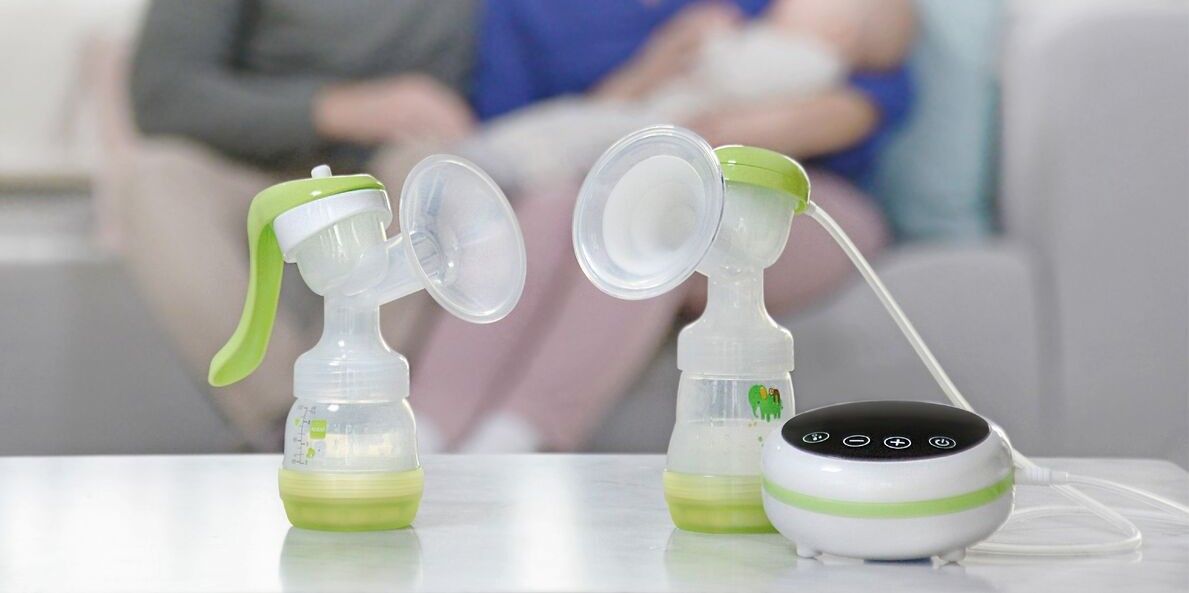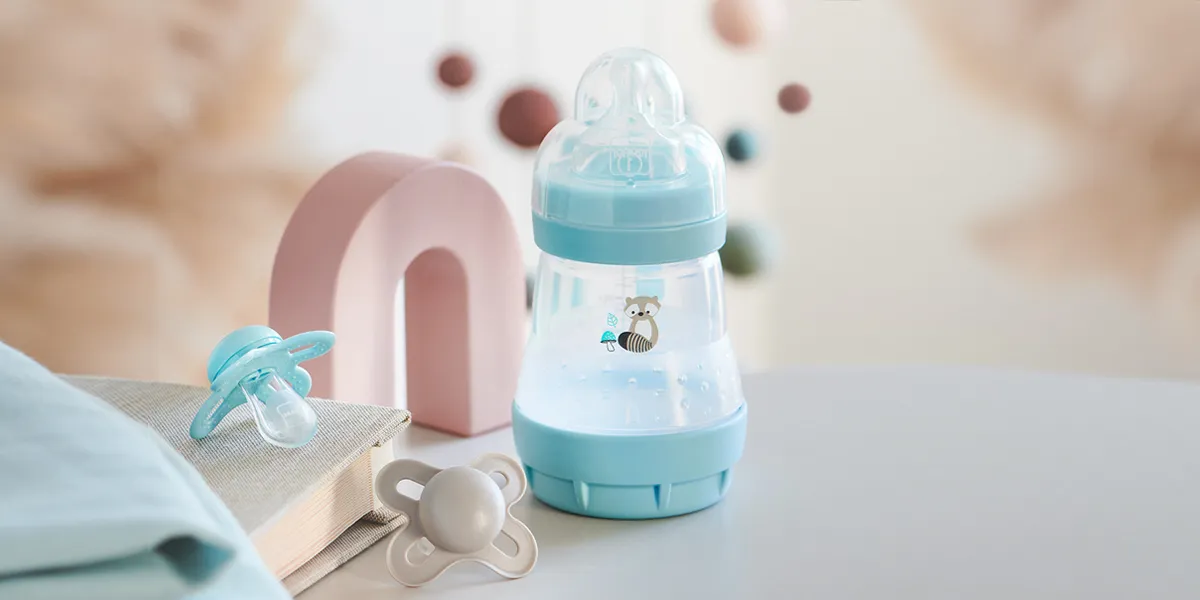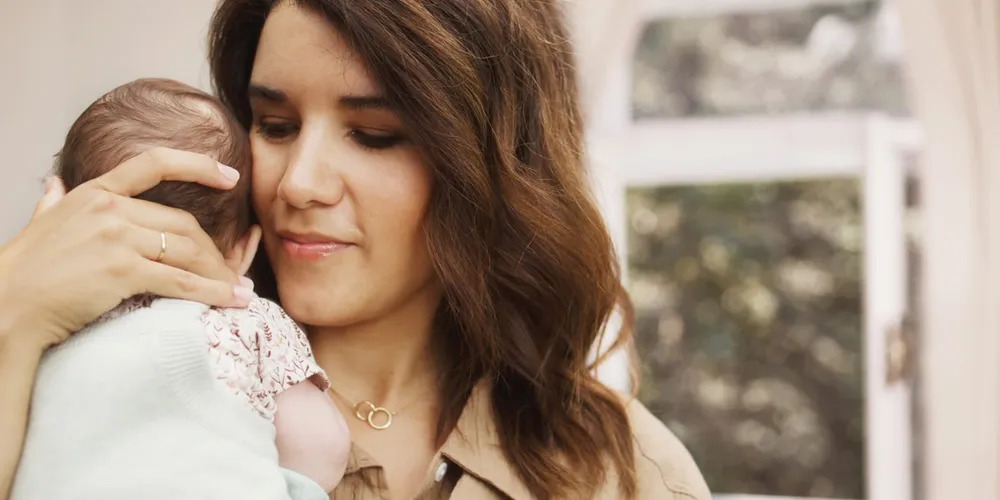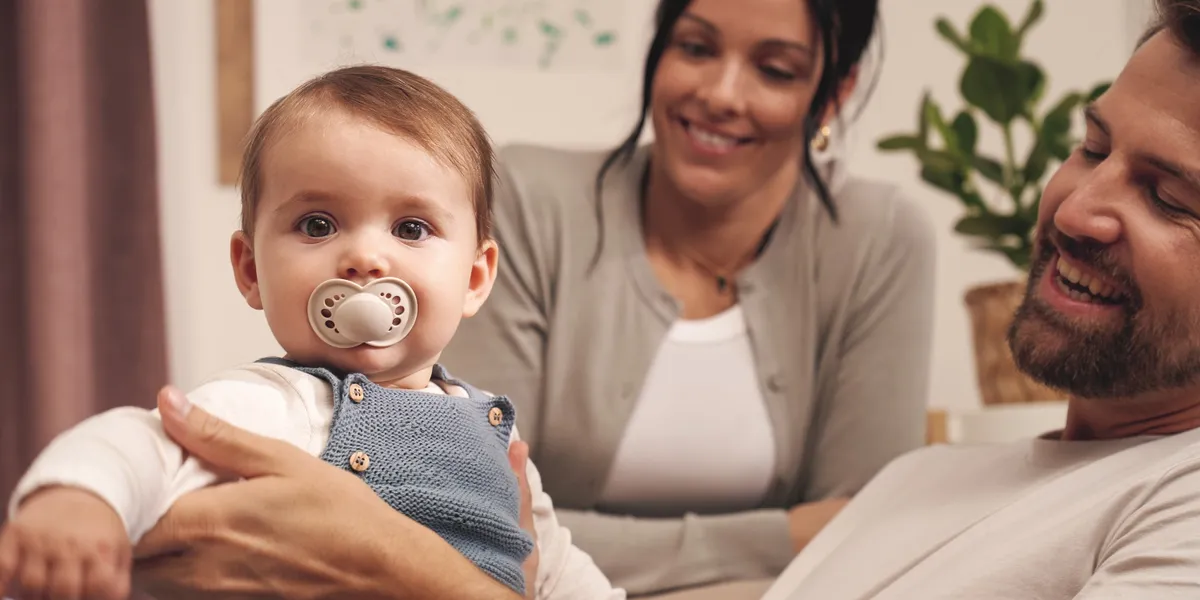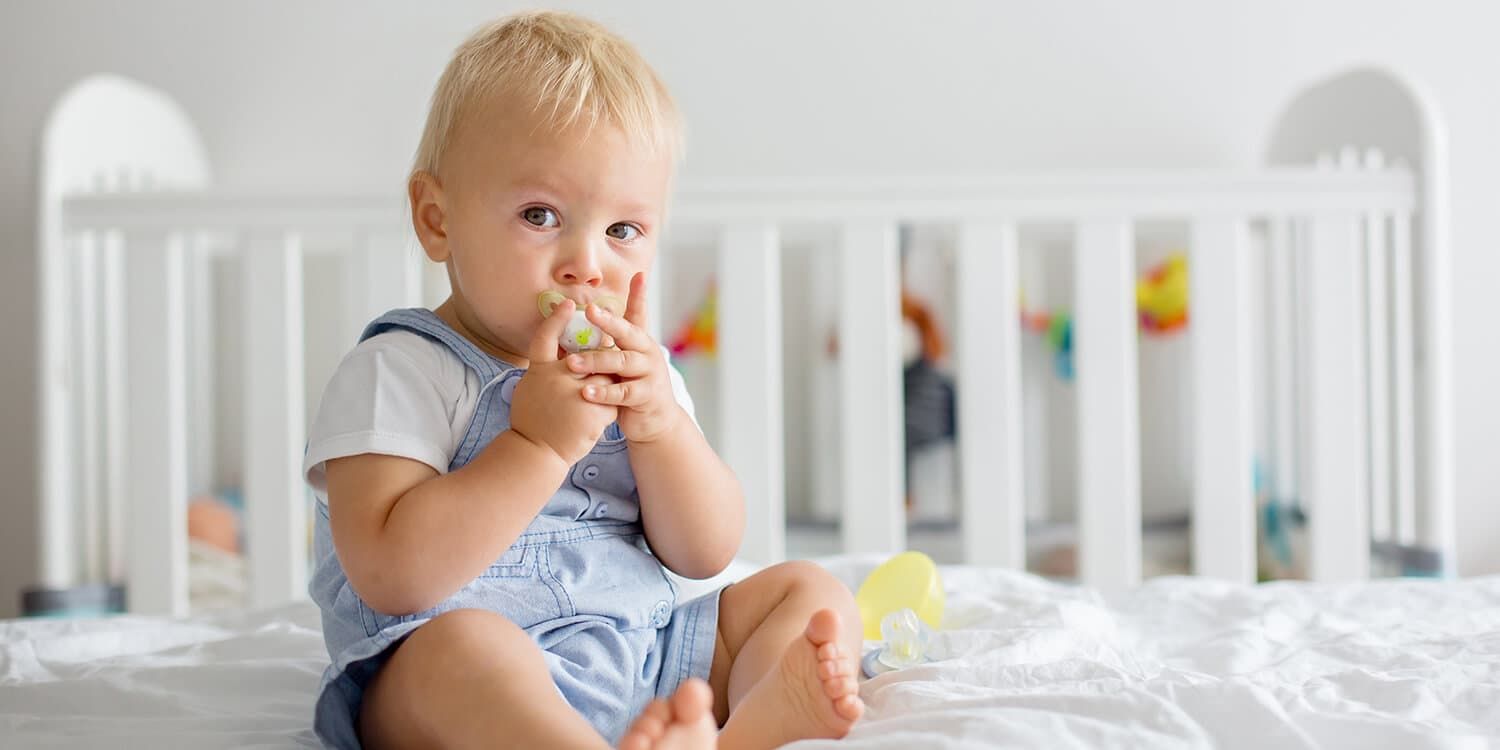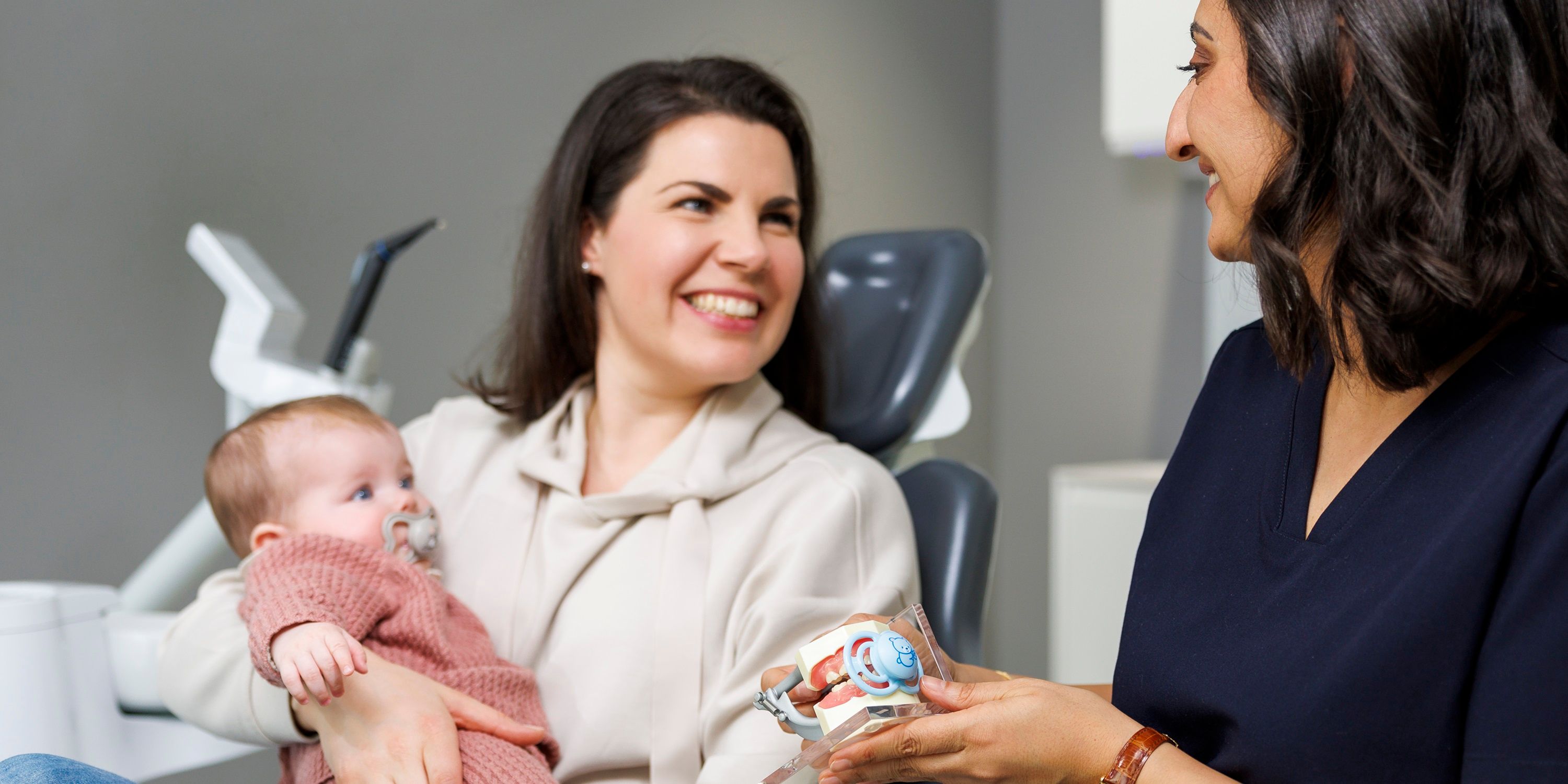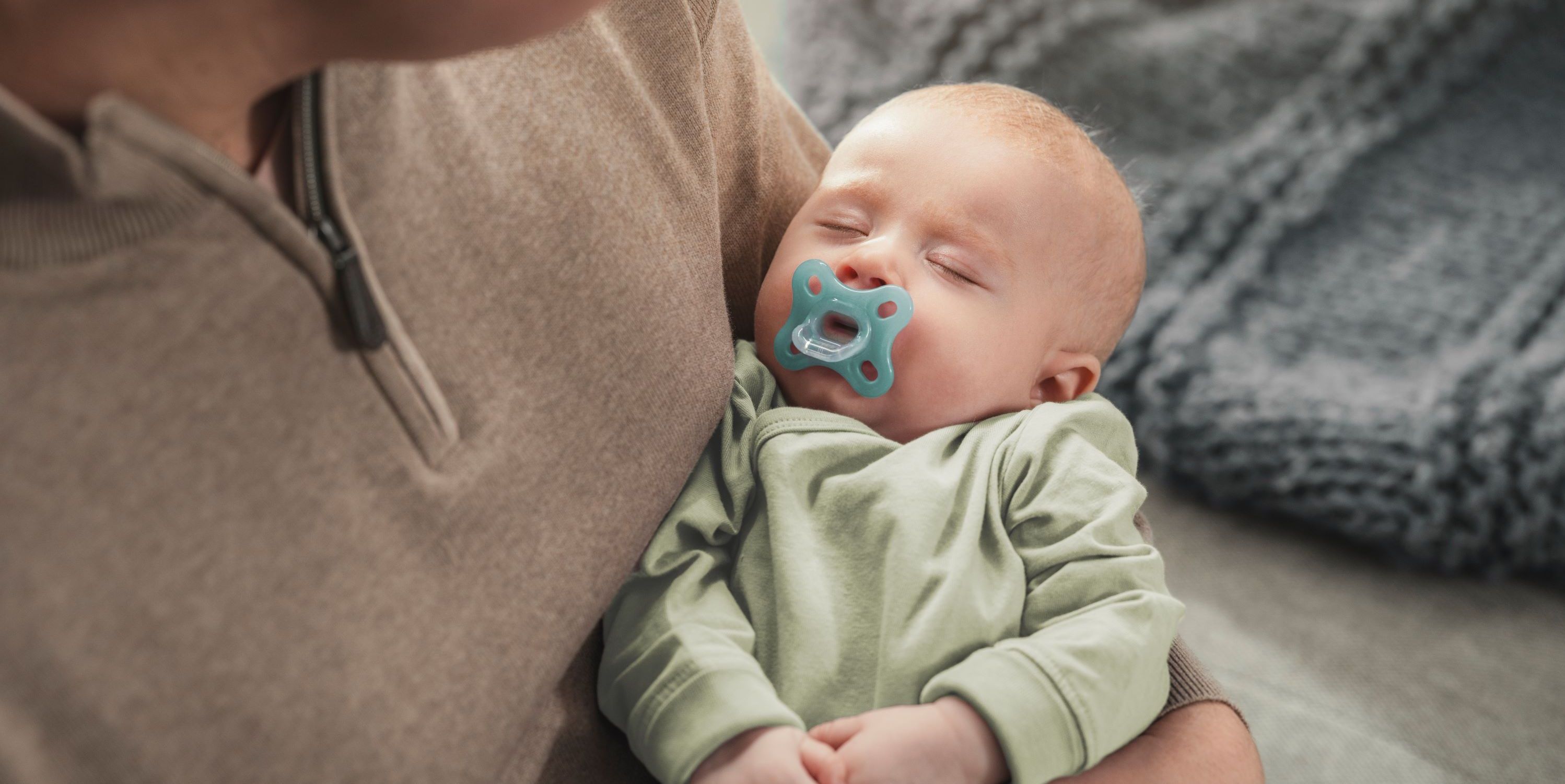Babies have a great urge to suck. Pacifiers are a big hit with most infants – and many adults find them a huge help. Ultimately, sucking on the pacifier soothes and can even relieve pain. But at some point, the time arrives to bid it farewell. Read on to find out why it is so important for children to relinquish their pacifier and when it's the ideal time to do so.
The development of the urge to suck
During the first year of life the urge to suck is still great. Sucking not only serves to satisfy hunger, it also helps relaxation. The mother's breast is perfect for this. If you do not wish to, or you are unable to put your baby on the breast to suckle at any time, it is advisable to provide a suitable pacifier.
High-quality pacifiers are anatomically correctly shaped and quality-tested. This not only relaxes the babies, but also the parents! Another advantage of the pacifier is that it is much easier to wean baby off a pacifier than a thumb.
When should baby stop using the pacifier?
We recommend gradually reducing the use of the pacifier from the second birthday. Toddlers should say a final farewell to the pacifier by their third birthday. The reason is simple: at this age the milk teeth are already fully developed.
We also generally recommend visiting a (pediatric) dentist around your child's first birthday to discuss a dental health plan, in order to avoid caries.
Excessive use of a pacifier (more than 6 hours a day) and use beyond the age of 3 can lead to maldevelopment of the permanent bite. This means an, open bite, the front incisors do not meet each other when biting together, but a gap remains or, overbite, the upper incisors sit in front.
To ensure that baby’s teeth and jaws continue to develop healthily, your little one should therefore say goodbye to its pacifier at this age.
Natural development also helps here: in the second year of life the urge to suck slowly decreases. Little ones learn how to talk and, ideally, they have less time and desire to suck. After all, a conversation without a pacifier is much nicer!
Some children find parting with their pacifier easy, others are very attached to the habit they have become so fond of. But with a little patience and imagination on the part of the parents, saying goodbye is usually fairly straightforward.
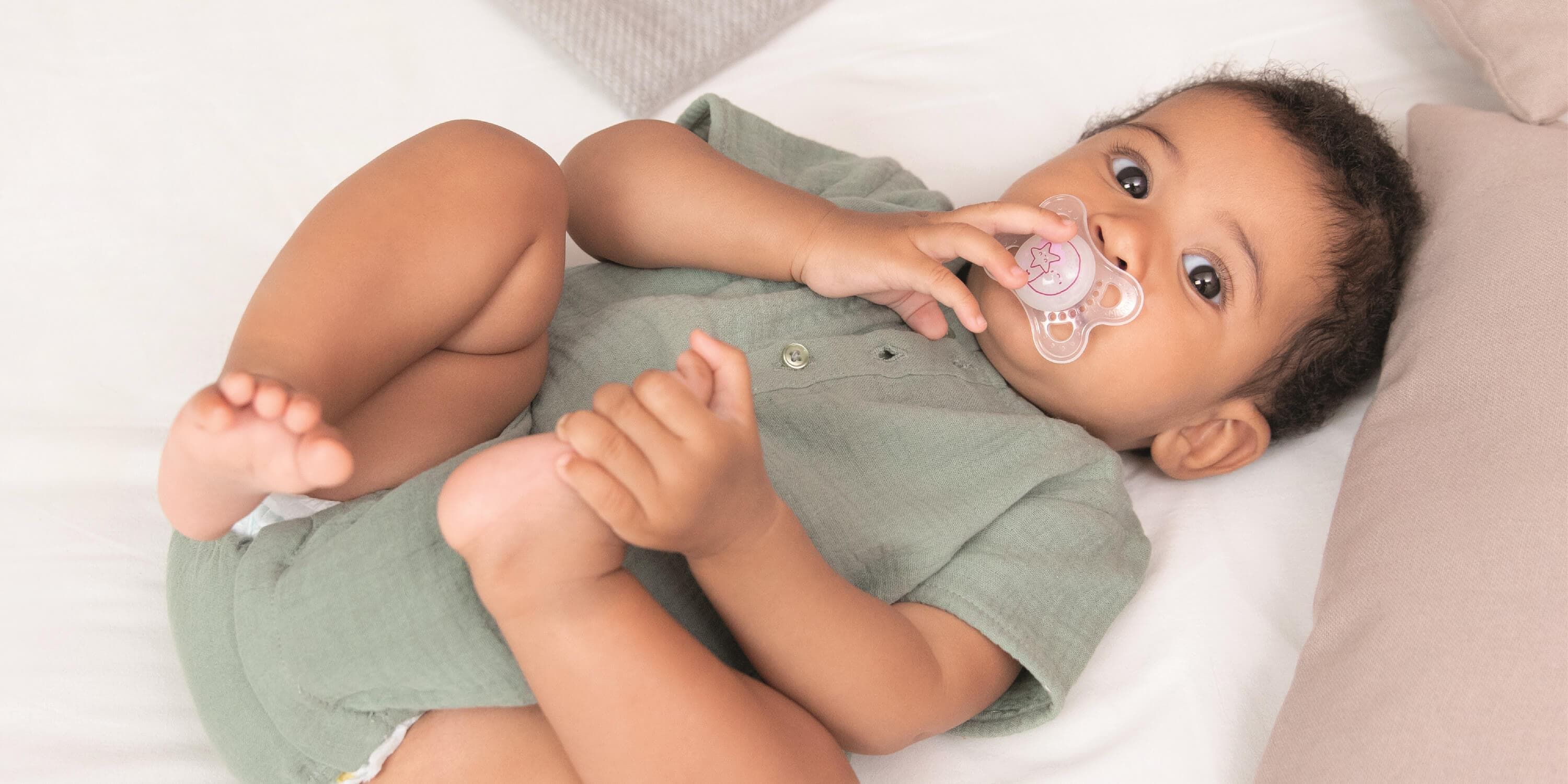
MAM tips for giving up the pacifier:
- Cuddling gives infants a sense of security: if comfort is ever needed, there are alternatives to a pacifier. Plenty of cuddles with mom, dad, grandma, grandpa, or other caregivers make sure everything is alright again! In general, it is advisable to start breaking the habit during the day, because the pacifier is particularly helpful for many children when falling asleep.
- With a little distraction it is often easier to do without the pacifier: picture books, outings, or crafts are distracting and fun.
- Wean baby off it step by step: the process should take place slowly and gradually. During the initial weaning phase, for example, falling asleep with the pacifier is okay. But when the child gets up, the pacifier stays put.
- Final weaning should take place during a period in which the child is well and no major changes are expected.
- A new goodnight ritual makes it easier to fall asleep without a pacifier. This could be a story or a song, for example. Repeated every night, your baby gets used to the situation more quickly.
Saying goodbye to the pacifier can also be combined with a special event.
A few "bye-bye pacifier" ideas:
- The child "gives" all its pacifiers to a baby from its circle of friends. After all, the little one needs them much more.
- Visit from the pacifier fairy: she comes at night, collects all the pacifiers, and leaves a great gift in return.
- After a quick consultation with the sales staff, the child "pays" for a long-awaited toy with all its pacifiers.
Whatever you choose to do, it is important to remain consistent and always stick to the rules – even if it is sometimes difficult. This saves you tiring discussions and your little one learns to get used to the new situation faster.
Photos: Shutterstock
Sources: https://www.ncbi.nlm.nih.gov/pmc/articles/PMC2791559/















